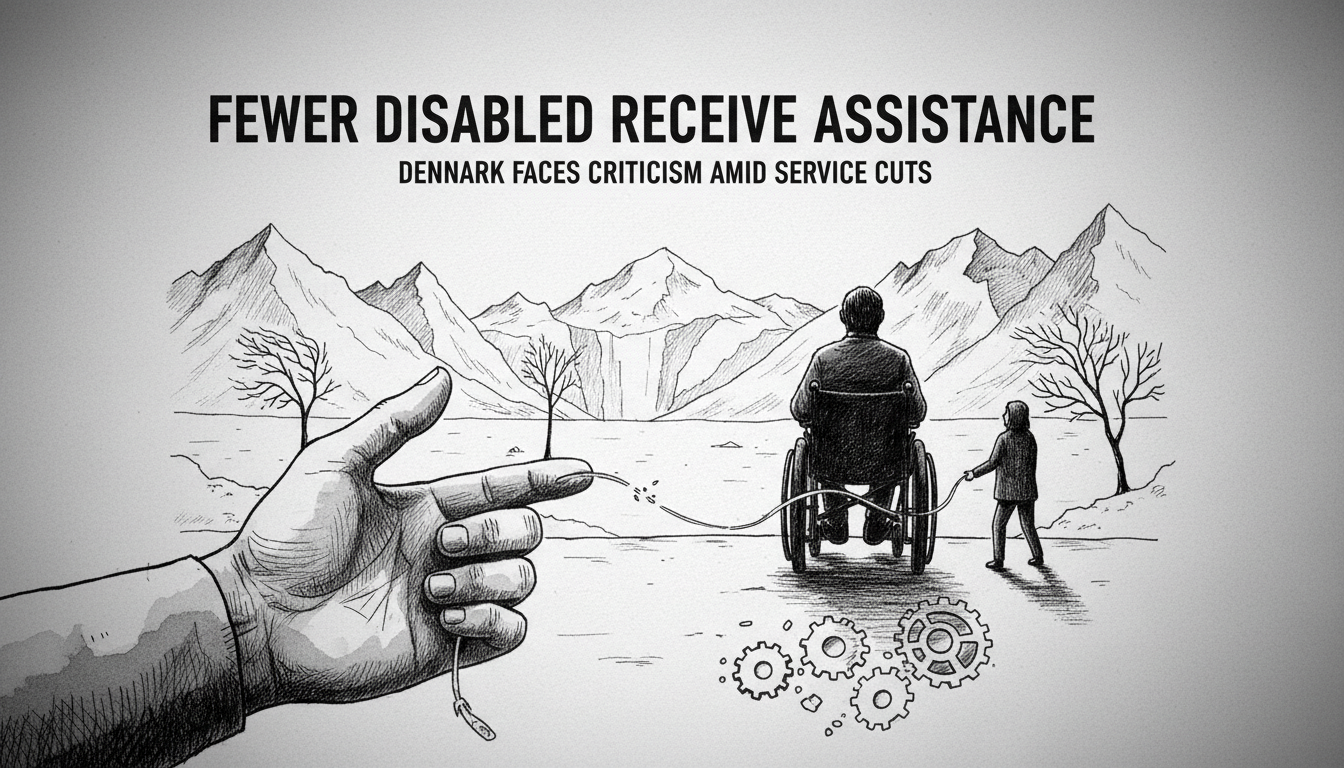A quiet crisis is unfolding across Denmark as fewer citizens with disabilities receive the comprehensive personal assistance they need. The BPA scheme, which provides user-controlled personal assistants for people with significant care needs, has seen a steady decline in recipients despite growing demand.
Elly Henriksen, a 77-year-old woman with muscular dystrophy, experienced this firsthand when her municipality revoked her 24-hour BPA arrangement after 13 years. Instead, she received six daily home care visits, night watch service, and 15 hours monthly assistance for leaving her home. The change devastated her quality of life.
"I am kept alive, but nothing more than that," Henriksen said. "I completely shut down. If I want to read a book or newspaper, I need someone to put my glasses on and turn pages. But there is no one. So I stop doing it."
Her story represents a broader trend affecting hundreds of Danes with disabilities. National data shows BPA recipients dropped from 1,615 to 1,480 over six years, with the sharpest decline occurring in the most recent period. New approvals for the scheme fell by 32 percent between 2019 and 2023.
Experts point to financial pressures driving this reduction. A BPA arrangement costs municipalities approximately 1.5 million kroner annually per person, while traditional home care services are significantly cheaper. This creates clear incentives for cash-strapped municipalities to limit access to the more comprehensive support.
Professor John Klausen from Aalborg University identifies this as problematic. "There is an incentive for municipalities to limit the number of citizens with BPA arrangements," he explained. "This creates tension when legislation grants rights to certain services, but municipalities try to offer cheaper alternatives for economic reasons."
The Danish Disability Organizations confirm this pattern. Chairman Thorkild Olesen noted, "We are experiencing a dramatic decline in BPA arrangements, excessive bureaucratization, and municipalities wanting to split the scheme into atoms."
What makes BPA different from standard home care is user control. Citizens employing personal assistants can schedule help when they need it rather than when caregivers have availability. This flexibility enables work, education, and social participation that traditional care models cannot support.
Thomas Krog from the Muscular Dystrophy Foundation emphasized this distinction. "The opportunity to pursue education, employment, or leisure activities completely depends on having a BPA arrangement. The alternative provides help getting out of bed and getting dressed for survival but not for actually living life."
After eighteen months of appeals, Henriksen successfully challenged her municipality's decision through the Parliamentary Ombudsman. She now has her personal assistant restored but lives with uncertainty. The municipality could issue a new decision removing her support with just 14 weeks' notice.
Municipalities deny systematically reducing BPA access. Brønderslev Municipality stated they have no general policy to decrease arrangements and make changes based solely on professional assessment. The Municipalities' Association also disputes the characterization, noting complaint numbers have decreased.
This situation reflects the tension between disability rights and municipal budgets. As populations age and care needs grow, Denmark faces difficult choices about what level of support constitutes basic dignity versus optional quality of life. For people like Henriksen, the difference between survival and living comes down to having control over when and how they receive help.
The decline in BPA arrangements suggests municipalities are making budgetary decisions that prioritize basic care over full social participation. This approach may save money in the short term but risks isolating disabled citizens and limiting their contribution to society. The ongoing struggle between individual rights and collective resources will likely define disability policy for years to come.

